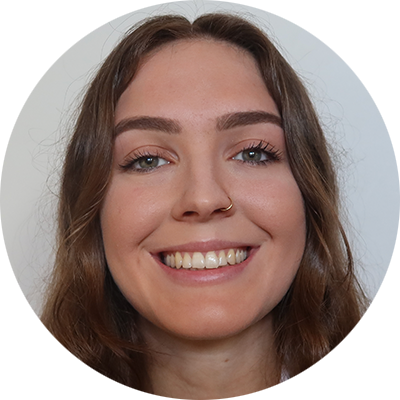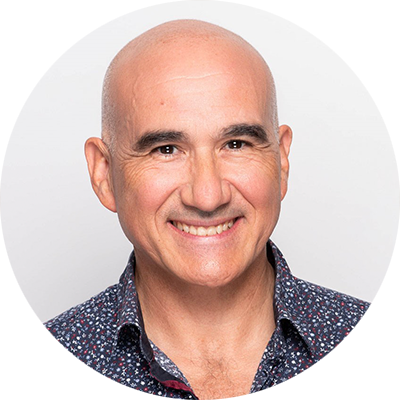Entry requirements
Key information
overall
overall
Note: Part-time equivalent study options are not available for international students.
Prepare for a global career.
As one of the largest tertiary language providers in South Australia, Flinders offers the opportunity to study French, Indonesian, Italian and Spanish. Additionally, through our cross-institutional partnerships, you can also pursue studies in Chinese, German, and Japanese.
Through student-centred learning, small class sizes and educated by native speakers, you'll become part of the Flinders Language community and be guided to tailor your learning experience to your unique career goals. With international exchange opportunities, you will receive a solid foundation for understanding, learning and using languages, and combine your language proficiency with the cross-cultural knowledge and skills that are invaluable in international workplaces.
SA's only specialised language degree
Flinders' Bachelor of Languages is the only degree in South Australia in which you can study languages in depth.
Study overseas
Take your language abroad, delve into the culture and cement your skills with international exchange opportunities in second and third year.
Start from scratch
Studying a languages doesn't require prior language skills. Choose to start at Introductory or Intermediate level.
Ranked in the top 2%
of the universities in the world
THE World University Rankings 2024 as a percentage of the total number of universities in the world according to the International Association of Universities
Ranked No.1
in SA for learning resources
The Good Universities Guide 2025, public SA-founded universities only (undergraduate)
Ranked No.1
in SA for Humanities, Culture & Social Sciences for full-time employment and learning resources
The Good Universities Guide 2025 (undergraduate), public SA-founded universities only
Explore a career that can take you around the world.
With the internationalisation of the job market, graduates with a qualification in a foreign language will have greater employment opportunities both in Australia and overseas.
Potential areas of employment include tourism agencies, foreign language teaching, international trade, finance and commerce, diplomatic and defence agencies, translating services, and international development.
Salary
$133K
typical salary in Australia
International trade specialist
An International trade specialist supports businesses in navigating global markets by providing expertise in export/import regulations, trade compliance, and international marketing strategies. They analyse global economic trends, negotiate trade deals, and help businesses identify opportunities abroad. Their role is essential in minimising risks, ensuring legal compliance, and maximising the success of international trade operations.
Translator and interpreter
Translators and interpreters convert spoken or written content from one language to another while preserving meaning, tone, and context. Translators work primarily with written text, while interpreters focus on real-time verbal communication. They play a vital role in cross-cultural communication in fields like diplomacy, healthcare, law, and international business.
Salary
$80K
typical salary in Australia
Sources: Salary Expert, 2025 | Seek Australia, 2025
Settlement support officer
A Settlement support officer assists newcomers and immigrants in adjusting to life in a new country. They provide information, resources, and guidance on housing, healthcare, employment, education, and legal services. Their role is essential in helping individuals integrate into their communities and access the services they need for a smooth transition.
International student adviser
International student advisers support foreign students throughout their educational journey. They offer guidance on visas, academic requirements, cultural adaptation, and personal issues. Advisers ensure students comply with immigration regulations and help them successfully navigate campus life, contributing to a positive international education experience.
Foreign language intelligence analyst
Foreign language intelligence analysts collect, translate, and analyse information in foreign languages for national security and intelligence purposes. They assess threats, interpret communications, and provide cultural insights to support defence or law enforcement operations. Their linguistic skills and analytical expertise are critical in identifying and responding to global security challenges.
What will you study to start your language career?
In your first year, you'll study core topics and your choice of majors and option topics. In Year 2 and 3, you'll then be able to tailor your degree even further with core topics from majors and minors, as well as options topics.
- Year 1
- Year 2
- Year 3
GENERAL
In your first year, you’ll study core topics and your choice of major and option topics.
Year 1 - Core topics
Your first year might include the following topics. For exact topic information, visit the course Handbook.
- Strategies for language learning
- How language works
- World languages
- Communication
- 2x Major A topics
- 2x Major B or options topics
GENERAL
In your second year, you'll study core topics, and select topics to contribute to majors or minors.
Year 2 - Core topics
Your second year might include the following topics. For exact topic information, visit the course Handbook.
- 2x Major A topics
- 2x Major B or Minor A or option topics
- 2x Minor B or option topics
- 2x option topics
GENERAL
In your third year, you'll study core topics, and select topics to contribute to majors or minors.
Year 3 - Core topics
Your third year might include the following topics. For exact topic information, visit the course Handbook.
- 4x Major A topics
- 2x Major B or Minor A or option topics
- 2x Major B or Minor B or option topics
For exact topic information, visit the course Handbook.
Customise your degree.
Focus on up to 3 languages that interest you by choosing majors and minors.
MAJOR
French
French is spoken by over 300 million people across 5 continents, making it one of the most valuable languages for global communication, travel, and career opportunities.
Access the rich cultures of France, Canada, Belgium, Switzerland and many other francophone countries through literature, art, cuisine, and cinema.
MAJOR
Indonesian
Indonesian is spoken by a quarter of a billion people, and is the national language of the world’s fourth most-populous country.
Indonesia is the largest economy in the Southeast Asian region, and is forecast to rank in the top five global economies by 2040.
MAJOR
Italian
Italy is a leading world economy, the third largest economy in the European Union, and one of Australia’s strongest trading partners.
Italy is an exceptional reference point for anyone with a personal or professional interest in music, arts, design, fashion, food, sustainability and lifestyle.
MAJOR
Spanish
Spanish is the second most spoken native language in the world, with over 500 million speakers across 21 countries.
Learning Spanish provides access to its rich literature, music, films, and other cultural works in their original form.
MAJOR
Applied Linguistics
Language and communication are key to everyday life: from how we decipher advertisements, to how we feel about ourselves, or how we speak with friends and family.
The major in Applied Linguistics will delve into the intricacies of language acquisition, usage and teaching, equipping you with essential skills to analyse and address linguistic challenges.
MAJOR
TESOL
With TESOL, you’ll learn how to teach English using contemporary knowledge, skills, principles and tools for second language learning, teaching and assessment.
The major will also explore issues such as the relationship between languages, cultures and societies, the acquisition of second and foreign languages, the teaching and learning of languages, language policy, and cross-cultural communication.
Ranked #1 in SA
in Communications for learning resources, overall experience and student support.
The Good Universities Guide 2026 (undergraduate), public SA-founded universities only
Ranked #1 in SA
in Humanities, Culture & Social Sciences for full-time employment and learning resources.
(The Good Universities Guide 2025 (undergraduate), public SA-founded universities only)
Ranked in the top 2%
of the universities in the world
The World University Rankings 2023 as a percentage of the total number of universities in the world according to the International Association of Universities
Discover South Australia.
Where world-class education meets laid-back coastal living. With pristine beaches, acclaimed wineries, and vibrant festivals at your doorstep, South Australia offers an unmatched student experience.
Photo credit: SATC
Flinders offers a vibrant, fun, supportive uni experience you’ll remember for a lifetime.
Need support?
From cultural, health and wellbeing services, to study and financial support, enrolment advice and more, we’re here to help.
Student clubs
Flinders University Student Association (FUSA) is the heart of the Flinders Experience. FUSA is where you’ll find out about events, club memberships and extracurricular activities.
Campus facilities
Flinders’ campuses are hubs of activity, with retail and food outlets, library spaces, study and chill spaces and more.
Get inspired.
Discover more about Flinders University’s Bachelor of Languages.
Want to study a language?
Learn more about the Bachelor of Languages.
“As part of this degree, I have had opportunities both in-country and overseas to enrich my learning experience."

Alexandra Reinhardt
Languages (French and Spanish)
“I found that the teaching staff are willing to go above and beyond to help students maximise their potential."

Cody Tonkin
Languages (Spanish and Applied Linguistics)
Need support?
International Student Services (ISS) is the first point of contact for international student support. The university also offers everything from cultural, health, and wellbeing services, to academic support.
Campus tours
Take a virtual tour of our campuses, guided by your fellow international students.
FUSA
Flinders University Student Association (FUSA) is the heart of the Flinders Experience. FUSA is where you'll find out about events, club memberships, and extracurricular activities.
Accommodation.
Adelaide has many accommodation options for international students. You can choose to live on campus, at our city accommodation provider The Switch, or in rental accommodation.
Learn from the experts.
Our incredible teaching and professional staff are experts in their fields and well-connected to industry.

Christèle Maizonniaux
Christèle has a passion for Language pedagogy (Scholarship of teaching and learning), more specifically for French children's/youth literature as a means to learn/study French as a foreign language, a field she has been pioneering in. She has a creative mind and is always keen to stimulate creative skills in others.
Besides this, she also loves bringing people together and is committed to giving her students opportunities in French industries both locally and internationally.

Eric Bouvet
Prof. Eric Bouvet is French-born and passionate about languages. In Australia, he has taught French at all levels, and currently teaches language and culture at Upper Intermediate and Advanced levels.
He has published in the applied linguistics, specifically in the area of language learning strategies which he integrates into his classroom practice. Eric has also taught Applied Linguistics and Migrations Studies. Until recently, he was Dean (Education) for the College of Humanities, Arts and Social Sciences.

Tom Power
Tom Power is a lecturer in the Indonesian language and Indonesian studies. He teaches Bahasa Indonesia from the Introductory to Advanced levels, and also lectures on Indonesian society and politics.
He has researched and published on Indonesian party politics and democracy, and regularly contributes to seminars and conferences in Australia, Indonesia and elsewhere.

Stefano Bona
Dr Stefano Bona was born and raised in Italy and has a passion for everything moving across boundaries, like intercultural communication interdisciplinary studies - and of course, travel. He spent four years in China and since he moved to Australia he has become a tireless teacher of Italian language and culture, at university and within the community.
He has completed his doctoral research and has published articles on transnational cinema, specifically on Italian-Chinese co-productions and the representation of China in films made by Italian directors.

Javier Díaz
Javier Díaz is involved in the development, teaching, and administration of SPAN, LANG and LING topics with the Discipline of Languages, Linguistics, TESOL and Communication.
Javier has been actively involved in the training and support of language teachers in SA for a long time, and collaborates regularly with teaching professional associations (STASA, MLTASA) and education organisations (SACE Board of SA, Education Office of the Spanish Embassy in Australia), as well as with a number of multicultural community groups.
Connect with industry.
The degree provides you with practical experience that prepares you for the workforce. Put your language into action via placements in organisations such as film festivals, care facilities, ethnic radio stations and other community organisations.
Let’s get started on your Flinders’ experience.
We know not everyone begins uni the same way, so we offer a variety of pathways into Flinders.
Use the dropdown to tell us a bit about you.
Alternative pathways
UniTEST
If you’re in Year 12, taking the free uniTEST can help boost your chances of getting into Flinders.
Research Project B Pathway
Strong results in your Research Project B subject along with your Year 12 results can be considered for entry.
Year 12 Grades Entry
By using three of your best Year 12 grades, you can also gain a place in your course of choice.
School Recommendation Program
Your school’s recommendation about your academic performance may be considered as part of your admission.
If you started uni but didn't finish, you may be able to gain entry into Flinders with a higher education transfer.
Higher education transfer
If you’re studying at another university, you may be able to transfer to Flinders based on your Yr 12 results, current GPA or other factors.
If you've had TAFE or VET training, you may be able to continue your study with Flinders.
TAFElink
Even if you didn’t finish high school (Year 12), you may be able to study at Flinders through your TAFE/VET qualification.
Dual offer pathways
You may be able to complete a TAFE SA course and have guaranteed entry into Flinders.
Credit transfer
The TAFE/VET stud you’ve already done may be able to be used as credit towards a Flinders’ course.
No ATAR? No worries. If you've got work or life experience, there are pathways into Flinders.
Flinders Foundation Studies
The Foundation Studies Program is free and guarantees entry to a range of degrees.
Skills for Tertiary Admissions Test (STAT)
The STAT is a 2-hour multiple choice test that assesses your abilities.
Year 12 qualifications
If you completed Year 12 more than two years ago you can still use your results to apply.
Concerned about your ATAR? If it doesn't meet the course requirement, or if you don't receive one, we offer alternative pathways to admission. Contact us to discuss your options—we're here to help.
- Entry requirements
- Application options
If you don’t meet our English language entry requirements and need to improve your English language proficiency, you can do so through Flinders University Academy – or our approved English Language Instruction Course for Overseas Students (ELICOS) providers.
This means that you can attend the required English language tuition at approved ELICOS providers and gain direct entry into university without an IELTS or TOEFL test.
If you don’t meet our academic entry requirements, you can still gain entry to Flinders University through Flinders University Academy. With a range of diplomas, foundation and English language courses, students can find a direct pathway into the destination degree of their choice.
How to apply
Select your course.
Check entry requirements.
Check your eligibility for credit.
Obtain certified documents.
Submit your application and documents.
Application options.
Apply online
Follow up our step-by-step guide to help you with your application to study at Flinders.
Find an agent
Our registered education agents around the world understand the university system and will guide you through the application process.
Contact us
Get in touch with our team to discuss your preferences, career options, pathways, and course and entry requirements. We are here to ensure you have everything you need to choose the right degree for you.
Don't meet academic requirements? Don't worry. We'll help you get there.
Preparatory courses
If you lack required English proficiency, improve through Flinders University Academy or approved ELICOS providers for direct university entry without IELTS/TOEFL tests.
Flinders University Academy
If you do not meet entry requirements for your desired degree, Flinders University Academy will provide you with a direct pathway into the destination degree of your choice.
Frequently asked questions.
Over the years, many questions have been asked by students before. For the quickest answers view our frequently asked questions or browse the full list @ Ask Flinders.
Yes, in the Bachelor of Languages, you could study one language major and a language minor plus other language and culture topics.
No. Our language degrees are available from beginner to advanced levels. This means that no matter what level you’re at in your language study, we can cater to you.
The Introductory level is the starting point for Beginner students (Level 1). Beginners will then progress to Intermediate (level 2) to complete a minor, and to Upper Intermediate (Level 3) to complete a major
The Intermediate level (Level 2) is the starting point for students who have taken the language at SACE or IB. These students will then progress to Upper Intermediate (Level 3) to complete a minor, and then to Advanced (Level 4) to complete a major.
Languages classes are not classes where you listen passively. They require active engagement. You will study languages in a friendly, supportive, and interactive environment. As classes are not large, you will have ample opportunity to practice your language skills through conversations, roleplays, presentations and debates.
Although the acquisition of grammar is fundamental to learning a language, our focus goes beyond rules and vocab to include cultural understanding and the development of intercultural competency. In upper years, you will be exposed to authentic material such as news items, blogs, literary texts, and films, enriching your appreciation of language and cultures.
The extent to which you develop your language skills is up to you. It depends not only on class work, but it also depends on opportunities you seize such as becoming a member of a language club or meet-up group, travelling to regions where your language of study is spoken, interacting with native speakers, etc. We are available to offer guidance on ways to enhance your language learning and experience outside the classroom.
The table below shows ATAR and Selection Rank data for students offered a place wholly or partly on the basis of ATAR commencing in Semester 1, 2025. It is limited to applicants that have recently completed secondary education (within the last two years). Data may reflect multiple courses available within a suite of courses.
Notes:
<5 – less than 5 ATAR based offers made
N/A – This course uses additional selection criteria and therefore Selection Rank is not published
| ATAR-based offers only across all offer rounds | ATAR - Excluding adjustment factors | Selection Rank - ATAR plus any adjustment factors |
|---|---|---|
| Highest rank to receive an offer | 95.20 | 99.95 |
| Median rank to receive an offer | 76.17 | 80.42 |
| Lowest rank to receive an offer | 57.75 | 61.00 |
The table below gives an indication of the likely peer cohort for new students in this course. It provides data on students who commenced study in this course in Semester 1, 2025 including those admitted through all offer rounds and international students studying in Australia. Applicant background groupings are based on educational background, not basis of admission. Data may reflect multiple courses available within a suite of courses.
Notes:
<5 – the number of students is less than 5
N/P – Not published: the number is hidden to prevent calculation of numbers in cells with less than 5 students
| Applicant background (Semester 1, 2025) | Number of students | Percentage of all students |
|---|---|---|
| Higher education study (includes a bridging or enabling course) | 44 | 37% |
| Vocational education and training (VET) study | 5 | 4% |
| Work and life experience | <5 | <5 |
| Recent secondary education - Admitted solely on the basis of ATAR (regardless of whether this includes the consideration of adjustment factors such as equity or subject bonus points) | 28 | 24% |
| Recent secondary education - Admitted where both ATAR and additional criteria were considered (e.g. portfolio, audition, extra test) | <5 | <5 |
| Recent secondary education - Admitted on the basis of other criteria only and ATAR was not a factor (e.g. special consideration pathways) | 17 | 14% |
| International Students | 18 | 15% |
| All students | 118 | 100% |
Frequently asked questions.
Get in touch with us to discuss your preferences, career options, pathways and course and entry requirements. We are here to ensure you have everything you need to choose the right degree for you.
The type of documents you will need for your international application depends on what course you are applying for and which country you are a citizen of. Course requirements are stated on each course webpage. Examples of documentation you might expect to provide for your international application include a copy of personal identification, academic transcripts or a resume.
Once you have received your Confirmation of Enrolment (CoE) letter from Flinders University, you should apply for your visa as soon as possible as visa processing times can vary. You will receive your CoE letter after you have applied to study at Flinders, accepted your offer and paid the semester tuition fee.
No. Part-time study is currently not available for international students due to visa conditions.
No. Online study is currently not available for international students due to visa conditions.
If you don’t meet our English language or academic entry requirements, you can still gain entry to Flinders University through our on-campus pathway provider Flinders University Academy. Alternatively, you can improve your English language proficiency through our approved English Language Instruction Course for Overseas Students (ELICOS) providers.
You can apply to study as an international student directly through Flinders University or an authorised agent in your country.
If you are from one of the countries listed here, you are required to apply via an education agent. If you reside onshore in Australia, you will not require an agent even if you are from the countries listed above.
Yes. As a student visa (subclass 500) holder, you and your dependents (family members) can work up to 48 hours a fortnight when your course of study is in session. If you have started a master degree by research or doctoral degree, this rule does not apply to you and working hours are not restricted.
Our dedicated International Student Services (ISS) team provide a range of programs supporting your enrolment, study and social life, as well as a referral service to facilities on campus and within the local community.
![]()
Sturt Rd, Bedford Park
South Australia 5042
South Australia | Northern Territory
Global | Online
CRICOS Provider: 00114A TEQSA Provider ID: PRV12097 TEQSA category: Australian University








